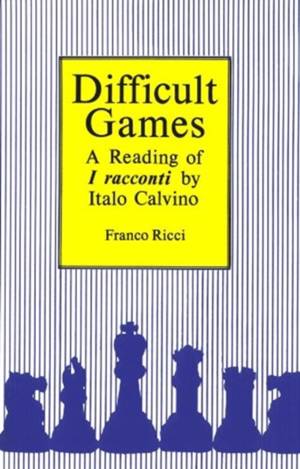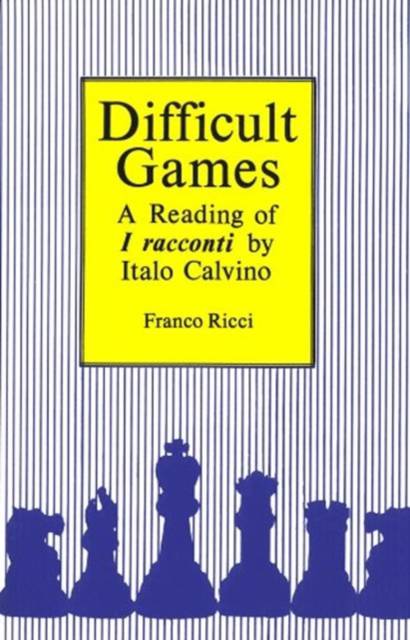
- Afhalen na 1 uur in een winkel met voorraad
- Gratis thuislevering in België vanaf € 30
- Ruim aanbod met 7 miljoen producten
- Afhalen na 1 uur in een winkel met voorraad
- Gratis thuislevering in België vanaf € 30
- Ruim aanbod met 7 miljoen producten
Zoeken
€ 37,95
+ 75 punten
Omschrijving
Examining Calvino's literary experiments as a young artist in search of his narrative voice, Ricci explores the psychological and existential motivations intrinsically linked to the writer's need for textual and systemic patterning. I racconti contains some of Calvino's least-read works, yet these early stories address issues, present scenarios and generate a growing variation of themes that form the heart of Calvino's narrative discourse. Ricci points out that melancholy permeates Calvino's works--even at his most playful. He suggests that if Calvino's highest merit was his sense of wonder and his urge to transform and defeat obscurantism with all the joy he could muster, one must remember that his work expressed, often painfully, the limits of human rationalism. I racconti can thus be read as a catalogue of the anxieties of both the young author and postwar Italian society.
Specificaties
Betrokkenen
- Auteur(s):
- Uitgeverij:
Inhoud
- Aantal bladzijden:
- 143
- Taal:
- Engels
Eigenschappen
- Productcode (EAN):
- 9781554585755
- Verschijningsdatum:
- 26/09/1990
- Uitvoering:
- Paperback
- Formaat:
- Trade paperback (VS)
- Afmetingen:
- 152 mm x 229 mm
- Gewicht:
- 249 g

Alleen bij Standaard Boekhandel
+ 75 punten op je klantenkaart van Standaard Boekhandel
Beoordelingen
We publiceren alleen reviews die voldoen aan de voorwaarden voor reviews. Bekijk onze voorwaarden voor reviews.








